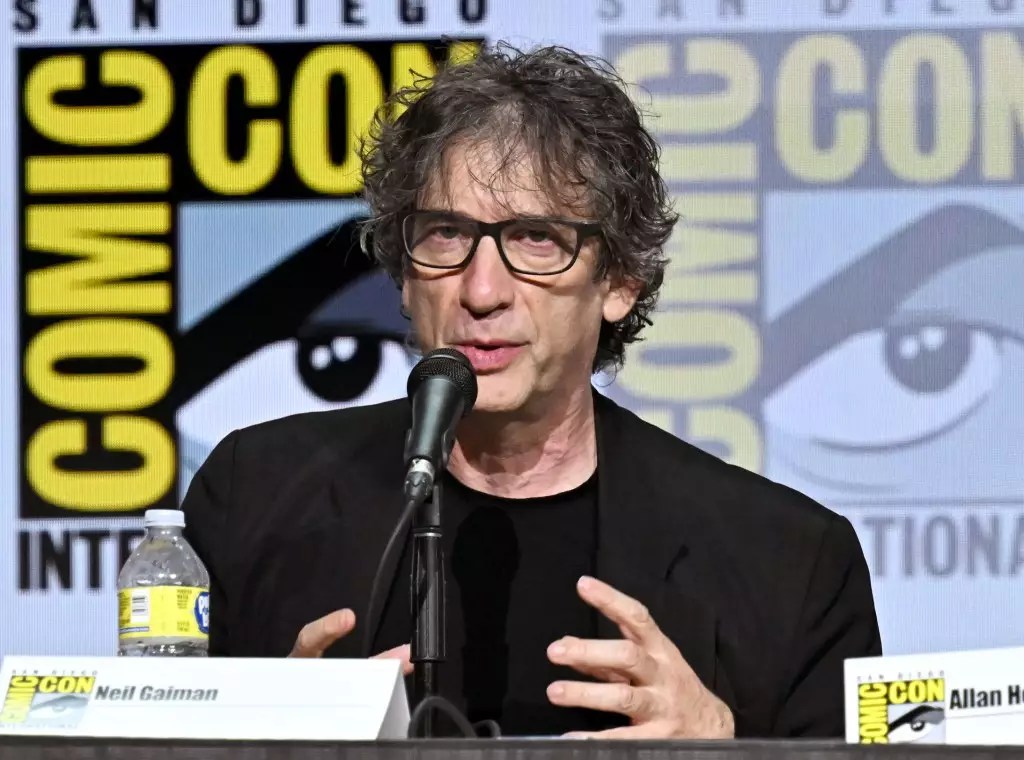The decision by Dark Horse Comics to sever ties with acclaimed author Neil Gaiman following sexual assault allegations has raised significant questions about accountability within the entertainment industry. The comic publisher’s announcement regarding the cancellation of the “Anansi Boys” series underscores a broader cultural reckoning focused on sexual misconduct. This comes on the heels of accusations surfaced by four women, revealing how the shadow of these allegations can change the course of a creator’s career overnight. Gaiman, widely known for his works such as “Coraline” and “The Sandman,” finds his artistic endeavors compromised in light of these serious claims.
What is striking about this case is not just the severity of the allegations themselves, but the poignant atmosphere of change that they evoke within the realm of creative arts. Dark Horse’s decision to halt publication signals a more extensive movement towards believing and addressing claims of misconduct head-on, especially in an era marked by increasing awareness and sensitivity towards such issues.
In a blog post addressing the allegations, Gaiman responded with a mix of acknowledgment and denial, expressing that while he recognizes the gravity of the grievances shared, he firmly believes he has not partaken in any non-consensual activity. He recounted moments from his past, stating there were intersections between what was claimed and instances he could not recognize, painting a complex portrait of reflection and self-analysis.
This reaction indicates a pivotal moment for Gaiman, who has previously enjoyed a polarizing role in the literary community. His statement captures a blend of contrition for any past interactions that could have been misinterpreted while staunchly asserting his innocence regarding the specific claims. However, this nuanced stance raises its own questions: Does one owe a form of concession for emotional unavailability if they remain unwavering in their assertion of consent? Gaiman’s advocacy for his truth, in direct contrast with the stories of his accusers, illustrates the tension that often exists during such public reckonings.
Cascading Effects on Career
The fallout from the allegations against Gaiman stretches beyond the cancellation of “Anansi Boys.” The anticipated conclusion of “Good Omens,” which is inextricably linked to his creative vision, has also faced significant changes with its transformation from a full third season to a singular 90-minute episode. As Gaiman steps back from his role, the ramifications are evident; a beloved work is truncated in direct response to external pressures, making it emblematic of the sacrifices which creators are often forced to make in times of crisis.
Moreover, the pause in Disney’s adaptation of “The Graveyard Book” showcases an alarming trend where financial investments and development decisions are overshadowed by allegations, irrespective of their validity. Gaiman’s works, which have long inspired adaptations and cross-media ventures, now find themselves imperiled, underscoring how swiftly the balance of public perception can tip.
One of the most critical dimensions of this unfolding narrative is the pervasive issue of engagement versus accountability. Gaiman’s acknowledgment of needing to reflect more thoroughly on his past behavior indicates an understanding that even unintentional emotional unavailability can contribute to harmful dynamics. His insistence on personal boundaries infers an inherent contradiction; how do we reconcile the roles of creator and person, especially when both collide uncomfortably with allegations that prompt societal responses?
The imperative for individuals in the creative fields is to foster reliable environments, enabling voices that may otherwise remain silenced. The artistic community must confront the implications of their actions—both past and present. Gaiman’s experience encapsulates both the urgency for transparency and the necessity for responsible navigation of complex social landscapes.
As these developments continue to unfold, the case of Neil Gaiman serves as a powerful reminder of the fragility of reputation within the entertainment sphere. The “Anansi Boys” cancellation stands not only as a loss for fans and stakeholders but also as a stark indicator of the evolving nature of accountability in artistic domains. Amidst dialogue surrounding the interplay of creativity and personal conduct, one hopes that the lessons gleaned resonate beyond mere headlines, leading to deeper transformations in culture and practices that define the industry today.


Leave a Reply